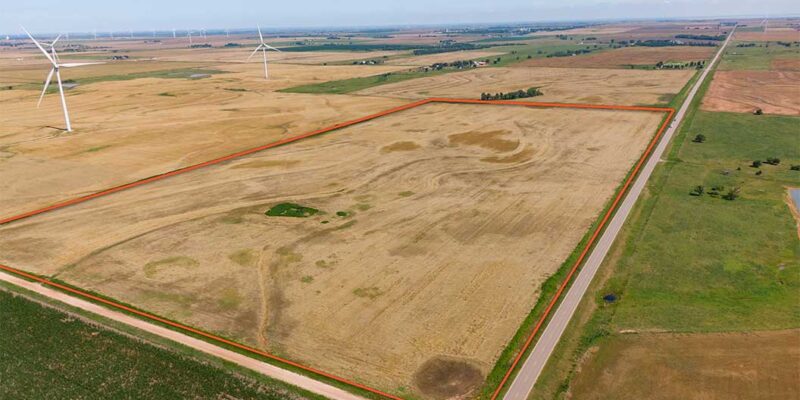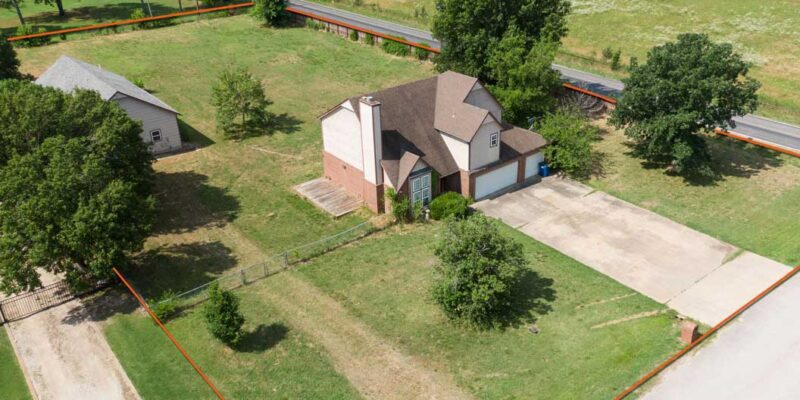Opting for a real estate auction offers the sellers the benefit of knowing the exact date their property will sell, a potentially higher sale price, and a straightforward, transparent buying experience. This guide aims to simplify the decision process by exploring the 5 key questions sellers must answer in order to determine if selling via auction aligns with your needs and goals.
Do you have time to handle the sales process?
Real estate auctioneers typically remove the hassle of selling by actively managing every aspect of the sale from signing to closing. That’s why auction is preferred by trust companies and families handling property sales after a loved-one has passed. Sellers often only need to sign the listing agreement and provide access to the property.
The auctioneers team handles everything from that point forward through closing. It greatly simplifies the real estate process and reduces seller stress.
What’s most important to you: a guaranteed sale or sales price?
There are two kinds of auctions you can choose from: absolute and reserve. Each has its advantages, and the best choice depends on what you’re looking for and the details of your property.
If you’re aiming for a definite sale, an absolute auction is best. Absolute auctions attract larger buyer pools and generate more excitement because buyers have more confidence in the sale. There is no ‘reserve price’. Buyers know that the property will absolutely sell to the highest bidder. An absolute auction is the “classic” type of auction where real estate is sold to the highest bidder, regardless of the price. There is no reserve price or minimum sale price. Bidding in an absolute auction starts at $0 resulting in fast and fierce competition for quality assets.
If you are risk averse, reserve auction may be for you. A reserve price is the minimum amount that a seller will accept as the winning bid. This prevents a bidder who offers a price lower than what you will accept from winning the auction. Reserve prices are not published. Sellers have the accept or reject the high bid within a designated time period – usually 24 hours. The auction company will work with sellers to set the minimum acceptable sales price. The downside of a Reserve Auction is that they reduce the potential buyer pool and bidding competition because there is no certainty they will be able to buy the property even if they are the highest bidder.
Both approaches can work well, and your auctioneer will help you decide the most suitable one based on what you need for your property.
Is your property unique or hard to value due to lack of comps?
When it’s time to sell, setting the right price can be tricky for any real estate asset. Typically appraisers review comparable properties to determine the value. But, for unique properties such as ranches, farms, rural land or lake homes, the lack of comparable properties makes it exceptionally difficult for brokers, banks, sellers and buyers to assign a fair value range to your real estate. An accurate appraisal of your properties value is only possible with a large data set of comparable recent sales.
A real estate auction as the ultimate way to set true market value. Instead of guessing and setting a price, an auction lets the market decide. It draws in all interested buyers to bid against each other. You get the genuine market value of your property, attract lots of interested buyers quickly and, speed up the selling process. This way, you’re not just getting any buyer, but the one willing to pay the most for your unique property. And you might even find the final auction price surpassing your expectations!
Are High Holding Costs a Concern?
When your property is up for sale, you’re still responsible for ongoing costs like taxes, utilities, insurance, and mortgage payments. For unique properties in rural areas, sellers often wait for months or years to get an offer through the traditional real estate listing sale process. Sellers are forced to pay for all of the expenses of holding the property. Often maintenance is a significant issue for unoccupied homes and buildings – little issues become big problems because no one is there to stay on top of it.
The longer it remains unsold, the more expenses you accumulate. Selling through an auction can speed up the sale process, helping you save money and swiftly move into your next home.
For landlords facing rental properties that cost more to maintain than they earn, or require significant repairs, selling via auction could be an effective solution. It’s a quick way to offload these properties, potentially increase your profits, and free up resources to expand your investment portfolio.
Homeowners facing unexpectedly high costs, such as large utility bills, HOA fees, or maintaining a property that’s too large, could benefit from a quicker sale through auction. This approach could help manage expenses more effectively.
Do you want to sell quickly, with no inspections, repairs or negotiations?
If so, real estate auction is for you. Properties are sold at auction in as little as 30-days. And, the winning bidder must be willing to accept the property as is. Buyers can’t ask sellers to do extra work or pay expenses on the property. A property sold at an auction isn’t tied to an appraisal, inspection, or mortgage. There also can’t be any conditions or contingencies from the bidder upon selling.
Real estate is sold at auction in ‘as-is’ condition – no contingencies, no inspections and no repairs. Buyers are responsible for inspecting the property and committing to buy the property ‘as it stands’. Sellers do not need to make repairs or improvements.
There’s no negotiating. Real estate auction removes the hassle of negotiating when you sell. No inspections or appraisals are required. And, closings as fast and typically surprise free.
Is auction right for you?
Real estate auction offers the benefits of a quicker sale, higher sales price and a simple transparent sales process.
Analysis of 25 academic studies reveals that property auctions consistently produce greater returns than traditional sales through realtors. Several factors consistently emerged as contributors to the higher returns achieved through auctions. These include:
Speed: Sellers control the sale by setting the sale date. They’ll know exactly when the property will sell. There’s no waiting and no ‘hoping’ to get an offer. Auctioned properties typically sell faster than those listed with realtors, reducing holding costs and increase overall returns.
Competitive Environment: The auction atmosphere encourages a competitive bidding environment, resulting in higher sale prices. Analysis reveals that the average real estate auction results in 15% greater total return. Real estate auctions take advantage of current demand by pitting buyers against each other. Sellers benefit from the competition. Buyers to see exactly how much others are offering and adjust their bids accordingly in real-time.
Transparency: Auctions provide a level of transparency that is often lacking in traditional real estate transactions. Traditional home selling methods often leave buyers in the dark, making offers without knowing what others are willing to pay. Sellers simply don’t know what the maximum offer can be so they often have to settle for less than true value.









